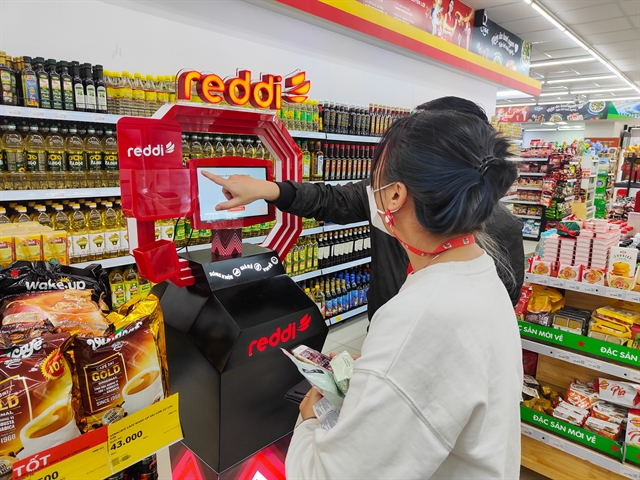[ad_1]

HCM CITY — On January 7, HSBC Global Research initiated coverage on the Masan Group stock (MSN) with a buy rating and a target price of VNĐ200,000, implying a 24.2 per cent upside from its close on Thursday (January 5).
According to HSBC, Việt Nam’s leading consumer company is accelerating its push into digital by partnering with Alibaba and acquiring the Reddi mobile network, of which Redi is a “trump card.”
Appreciating Masan’s digital transformation efforts, HSBC said its online sales have high growth potential based on its strategy of promoting regular shopping for essential goods on the Lazada online platform.
Online sales currently contribute less than 1 per cent to WinCommerce’s total sales, but the figure has increased rapidly.
“We think the partnership with Alibaba’s Southeast Asian e-commerce store Lazada will allow Masan to tap into the nascent online grocery market, with pricing a key competitive advantage.”
According to HSBC’s projections, there is likely to be an incremental sales benefit of at least 10 per cent from online sales and in-store pick-ups at WinMart/WinMart+.
Notably, its move into telecoms by acquiring Reddi is the first step in broadening its services that combine mobile and the Internet, leveraging technology and partnerships, HSBC said.
“In late 2021, Masan acquired mobile virtual network (MVN) operator Reddi.
“We think its intention is to build on synergies between Reddi and its other subsidiaries, such that it can become an aggregator platform, providing a myriad of services to end-consumers, or an omni-channel, online-to-offline super app.
“Masan has started to offer Reddi’s digital services and banking services from Techcombank in its WinMart+ stores, while introducing coffee from Phúc Long and pharmacy products from Phano.”
HSBC said the incorporation of Reddi into Masan’s ecosystem parallels Reliance India’s trajectory, suggesting Masan’s next step would be to expand offerings to payments and fintech and target consumers without bank accounts.
This is a sizeable opportunity as over 70 per cent of the country is still unbanked, it said.
“We model Reddi’s potential and estimate that, if it can achieve a 1 per cent share of the mobile market by 2025, its incremental revenue contribution to the overall group will be 1 per cent.”
In March 2021, the Government approved a pilot programme for mobile money (Decision No. 316/QĐ-TTg) that allows consumers to use telecom accounts to pay for small-value goods and services.
The goal is to increase the adoption of cashless payments and promote financial inclusion. Unlike e-wallets, which must be linked to bank accounts or debit cards, mobile money users only need a mobile account to carry out payments. The monthly transaction limit is also lower for mobile money at VNĐ10 million (US$440).
HSBC said: “In emerging markets with low banking penetration, we have seen a strong take-up of mobile money. For instance, in Bangladesh, bKash is a mobile money system with investors including BRAC Bank, IFC, Ant Financial, and the Bill & Melinda Gates Foundation.
“Established in 2010, it has grown to 50 million users and 200,000 agents across the country.
“We believe Reddi has significant potential to grow in payments, with 70 per cent of the population still unbanked. It will compete against other telcos with mobile money offerings.”
According to Masan, Reddi is focused on WinWart supermarket customers. The mobile virtual network operator targets having 16 per cent of loyal customers of the WinMart system, equivalent to 1.4 million, registering for its services and revenues of VNĐ150 billion a month in the first year after acquisition.
It is also Masan’s vision to create a full ecosystem for customers that covers Techcombank’s banking services, Phúc Long beverages and Phano pharmaceuticals. VNS
[ad_2]
Source link
